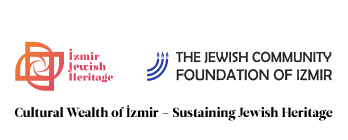Aaron Lapapa
(1604?–1667)
Sephardic rabbi of İzmir. Born in Magnesia, he was son-in-law of (Nissim) Solomon Algazi (the First). In his youth Aaron studied under Isaac Afomado, and later under Abraham Motal in Salonika and Joseph di Trani in Constantinople. He was appointed rabbi in his native town before 1632. In 1665, with the approval of Ḥayyim Benveniste, rabbi of Smyrna, the council of Smyrna scholars appointed him as the halakhic authority in matters of civil law, together with Benveniste, who confined himself to matrimonial and ritual matters. Lapapa was one of the most vehement opponents of Shabbetai Ẓevi, not hesitating to excommunicate him, and even to decree the death penalty against him. In December 1665, he was dismissed from his post by Shabbetai Ẓevi and his adherents. Immediately after Shabbetai Ẓevi embraced Islam a small group of Jews of Smyrna tried to reinstate Lapapa, but their efforts failed as a result of the powerful opposition of those who still believed in the pseudo-Messiah. Still, he served in the town as an official dayyan until his death. Lapapa published Benei Aharon (Smyrna, 1674), responsa on topics relevant to Ḥ oshen Mishpat, and some of his novellae and responsa on Oraḥ Ḥ ayyim and Yoreh De’ah were published in the Avak Derakhim (Salonika, 1814) of Baruch Kalomiti. His commentaries on the Sefer Adam ve-Ḥavvah of Jeroham b. Meshullam, Alfasi, Nissim Gerondi, and Maimonides’ Yad have not been published. He also compiled a collection of passages from the outstanding rishonim, on a number of tractates, of which the following are known: Ketubbot, Bava Meẓia, Beẓah, in the style of the Shitah Mekubbeẓet of Bezalel Ashkenazi.

